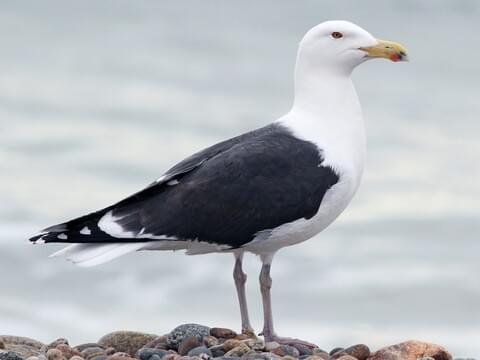Friday, August 5, 2022
(click here to listen to or read today’s Scriptures)
Naming the bird
Mary Oliver, poet and friend of the world, wrote an essay entitled “Bird.” (from Owls and Other Fantasies, p. 41-45)
On a December morning, two years ago, I brought a young, injured black-backed gull home from the beach. It was, in fact, Christmas morning, as well as bitter cold, which may account for my act.
Mary knew as well as anyone that humans rescuing wounded animals, especially birds, rarely works out well. But she brought him home anyway. Her partner welcomed him too. They knew you should never name a rescue animal, so likely to die.
They named him “Bird.” It was Christmas!
His eyes sparkled. We gave him a stuffed toy—a lion as it happened—and he would peck the lion’s red nose very gently, and lean against him while he slept.
Mary slept well too, as her new friend slept with his friend. The big red lion. The soft white-headed gull. Mary, learning her own art of loving. And seeing through her own eyes, what there was for her to see.
He was, of course, a piece of the sky. His eyes said so. This is not fact, this is the other part of knowing something, when there is no proof, but neither is there any way toward disbelief. Imagine lifting the lid from a jar and finding it filled not with darkness but with light. Bird was like that. Startling, elegant, alive.
Along they went living in their Atlantic Ocean home, hearing the waves all the twelve days of Christmas, joined by Bird for Twelfth Night, happy to be with them.
But no matter how hard I try to tell this story, it’s not like it was. He was a small life but elegant, courteous, patient, responsive, as well as very injured. And there is this certainty about muscles; they need to be exercised. And this was an enterprise in which he could no longer, to any useful extent, engage. At the same time he was gaining in attentiveness and eating more than sufficiently, he was growing weaker.
Isn’t this just like the rest of us, getting stronger and weaker at the same time?
Whoever wishes to come after me must deny himself, take up his cross, and follow me. Whoever wishes to save his life will lose it, but whoever loses his life for my sake will find it.
Surely Mary and her partner Molly recognized themselves in their friend Bird.
Was he in pain? Our own doctor, who came to see him, did not think so. Did we do right or wrong to lengthen his days? Even now we do not know. Sometimes he was restless. Then I would take him with me into the room where I write, and play music—Schubert, Mahler, Brahms. Soon he would become quiet, and, dipping his head, would retire into the private chamber of himself. But the rough-and-tumble work of dying was going on, even in the quiet body.
There were coming-ins and going-outs. January turned into February, and the cold winter persisted, sometimes in sunny stillness, occasionally in wild Atlantic storms. Snow fell upon snow.
It was late February when I came downstairs, as usual, before dawn. Then returned upstairs, to M. The sweep and play of the morning was just beginning, its tender colors reaching everywhere. “The little gull has died,” I said to M., as I lifted the shades to the morning light.
Mary’s story of her friend Bird has come to an end. Mary knew her Bible. In her lifetime she learned the nature of sacrifice and that God desired mercy more.
Just how much can I live my life that way?
What profit would there be for one to gain the whole world and forfeit his life? Or what can one give in exchange for his life?
Mary Oliver put that in other words in one of her most famous poems, “The Summer Day:”
Tell me, what is it you plan to do
With your one wild and precious life?
(Nahum 2, Deuteronomy 32, Matthew 5, Matthew 16)
(posted at www.davesandel.net)
#
